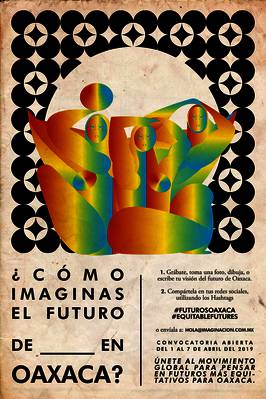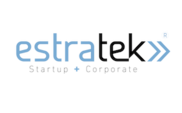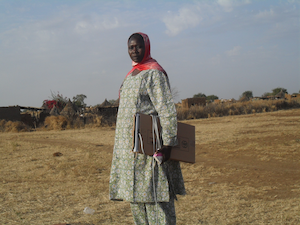Future Now
The IFTF Blog
Equitable Futures Nodes: Oakland, Oaxaca, Sudan and Colombia

Meet our first Equitable Futures Nodes, learn how they envision a more equitable future in 2030, and follow their stories on social media.
Over the course of Equitable Futures Week (April 1-7), we will be highlighting some of nodes that have committed to action towards a more equitable 2030, along with the visions and actions that are tagged with #equitablefutures. These nodes are adding to the global conversation about equality and building a resource for action on these real-world issues.
From Colombia to Oakland, Sudan to Mexico—
You can register to be an official node and help us imagine what a more #EquitableFuture could look like.
 BIG Oakland
BIG Oakland
Oakland, CA
A topic that most concerns this node is net zero income growth for Black Americans by 2030.
In 2030, an equitable future will be..."Socioeconomic disparity no more? America's middle class the largest, wealthiest and most diverse in history."
 CENTRO DE IMAGINACIÓN OAXACA
CENTRO DE IMAGINACIÓN OAXACA
Oaxaca, Mexico
Topics that most concern this node are the futures of
- Food
- Traditions
- Education
- Public Spaces
- Nature
- Arts and Culture
- Literature
- Transportation
- Environment
- Weather
- Poverty
In 2030, a more Equitable Future will be.... a moment in time when everyone respects all living things and be mindful of the ethics of the human genre. We will be a more equitable society, the day we provide every kid in Oaxaca access to opportunities for development in their own schools through a quality, humanistic educational system that will take into account their ideas, feelings and perceptions as the core of their formation. We will achieve an equitable society when everyone in Oaxaca could go out without getting stuck in traffic jams, and when every women could go out at any time and walk alone, happy and enjoy safely public areas. This future will be possible because we will build collectively mechanism of communication and participation, that will go beyond the structures proposed by governments, occasioning a major a tone-shift that will makes us stop pushing the pursuit of social sustainability and focus on cutting the forces that drive human underdevelopment. This scenario will be a place that will provoke healthy mental states, because we will be surrounded by nature, art manifestations and immerse in a safe environment free of intolerance and open to let us be the citizens of the earth we want to be.
We will be running a series of workshops in schools and museums using your letter for the future. We will create a social media campaign to drive traffic to the movement. We will launch a series of videos of key change-makers to provoke more conversations. We are also using our own methodologies.
Follow Centro de Imaginación Oaxaca on Facebook and Instagram
C.O.O.K. Alliance ("Creating Opportunities, Opening Kitchens")
Oakland, CA
A topic that most concerns this node is the future of food and the future of gig-work.
In 2030, in a more Equitable future... home cooks across the United States will again be able to legally and safely sell meals to their neighbors. We believe that home cooking helps build healthy, resilient communities and create economic opportunities for the people that need them most. Beyond just food, we are confident that neighborhood food sharing can also help us rebuild networks of local relationships, mutual understanding, and non-financial support.
 PilyMejia - Estrateck
PilyMejia - Estrateck
Medellin, Antioquia, Colombia
A topic that most concerns this node is education, women's role, work, and entrepreneurship.
In 2030, a more Equitable future will be a place where people can reinvent themselves and improve their skills to adapt to new work conditions. Young people won’t have to mortgage their lives to pay education loans because the education system would be transformed. Therefore, people will have the opportunity to have tailor-made learning and find work opportunities based on their skills and previous work experiences instead of depending on university titles. On the other hand, the number of women with skills to work in the 4th industrial revolution grows because society has stopped to exclude them from those fields. In addition, women after pregnancy period can be reincorporated easily to their working life because technology and society support them to develop the skills needed to start working again. Overall, the most important thing for the equitable future will be that society will create jobs to work on our SDG’s. For instance, the number of start-ups focuses on resolving problems like water scarcity, energy supply or food waste will increase; and through them, people will increase their willingness to contribute to the construction of a more sustainable world.
 Sudanese Equitable Futures
Sudanese Equitable Futures
In 2030, an equitable future will be...a nomad girl stayed in school and scores first place in the national university entrance exam. A young man from Darfur recalls his childhood in Kalma camp as he stands in front of a monument commemorating lives lost in the 16-years civil war. A woman in the Nuba Mountains is no longer “a water tap, a tractor, or a mill”.
One of the dominant slogans in the December 2018 Sudanese Revolution calls for “Freedom, Peace and Justice” that encapsulates the social, political and economic problems facing the country. During the Equitable Futures Week, I plan to address this slogan by discussing ideas of how it can be realised in post-Ingaz Sudan.



